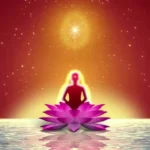Celebrating Cultural Diversity: National Festivals of India
India is a land of diverse cultures and traditions, and one way this diversity is celebrated is through national festivals. These festivals are not only a time for joy and merriment but also serve as a way to showcase the rich heritage and traditions of different communities across the country. From Holi, the festival of colors, to Diwali, the festival of lights, each national festival has its significance and charm.
During these festivals, people from different backgrounds come together to participate in rituals, exchange gifts, and enjoy traditional food and music. For example, during Navratri, a nine-day festival dedicated to the goddess Durga, people across India participate in energetic dance forms like Garba and Dandiya Raas. Similarly, during Eid, the festival marking the end of Ramadan, Muslims in India come together to pray, share meals, and give to charity.
In addition to its cultural significance, national festivals also promote unity and harmony among people of different religions and regions. These festivals provide a platform for people to come together, celebrate their diversity, and foster a sense of national pride. The colorful and vibrant celebrations of national festivals in India truly reflect the country’s rich cultural tapestry and create a sense of unity among its people.
Colorful Extravaganza: Bharat Rang Mahotsav – India’s National Theatre Festival
The Bharat Rang Mahotsav is India’s premier national theatre festival that showcases a vibrant and diverse range of theatrical performances from across the country. Held annually in New Delhi, the festival brings together established and emerging artists, directors, and playwrights to celebrate the rich heritage of Indian theater. With a focus on innovation and creativity, the festival features a colorful extravaganza of plays, performances, workshops, and discussions that cater to a wide audience.
From traditional Indian folk performances to contemporary experimental theater, the Bharat Rang Mahotsav offers a platform for artists to explore new ideas and push the boundaries of storytelling. The festival also serves as a networking opportunity for professionals in the industry, fostering collaborations and partnerships that help elevate the standard of Indian theatre. With a commitment to promoting inclusivity and diversity, the festival ensures that voices from all backgrounds are represented on stage, creating a truly inclusive and vibrant cultural experience.
As a celebration of the performing arts, the Bharat Rang Mahotsav not only entertains but also educates and inspires audiences to engage with important social and political issues through the lens of theater. Through its dynamic programming and dedication to artistic excellence, the festival has established itself as a beacon of creativity and a symbol of India’s rich cultural heritage.
Embracing Unity and Peace: Mahatma Gandhi Jayanti – A Tribute to the Father of the Nation
Mahatma Gandhi Jayanti is celebrated every year on October 2nd in India and around the world to honor the birthday of Mahatma Gandhi, the Father of the Nation. Gandhi’s teachings and principles of non-violence, unity, and peace have inspired generations of people to strive for a better world. His belief in the power of unity and solidarity among all individuals, regardless of their differences, continues to remind us of the importance of coming together to address global challenges and create a more harmonious society.
As we commemorate Mahatma Gandhi Jayanti, it serves as a reminder for us to embrace unity and peace in our own lives. Gandhi’s philosophy of love, tolerance, and understanding towards others is a timeless lesson that we can all learn from and apply in our interactions with one another. By following in his footsteps and practicing compassion and empathy towards one another, we can build a more inclusive and harmonious world, where peace and unity prevail over discord and division.
On this day, let us take a moment to reflect on the teachings and visions of Mahatma Gandhi, and strive to uphold his legacy of non-violence, unity, and peace. By coming together as one community, regardless of race, religion, or nationality, we can work towards a more peaceful and prosperous world for all. Gandhi’s message of unity and peace is a timeless reminder of the power of love and compassion to overcome hatred and division, and it is up to us to carry forward his message and strive toward a more peaceful and harmonious world.
Festive Feasts: National Street Food Festival showcasing India’s Culinary Delights
The Festive Feasts National Street Food Festival is an exciting event that celebrates the diverse and vibrant culinary traditions of India. This festival brings together street food vendors from across the country to showcase their unique and delicious dishes, allowing attendees to sample a wide range of flavors and ingredients. From spicy chaat and savory dosas to sweet jalebis and refreshing lassis, there is something for everyone to enjoy at this lively and colorful celebration of India’s culinary delights.
Visitors to the festival can expect to taste traditional dishes from different regions of India, each offering a tantalizing glimpse into the rich tapestry of flavors that make up the country’s gastronomic landscape. In addition to the mouth-watering street food on offer, there are also cooking demonstrations, live music performances, and cultural showcases that highlight the importance of food in Indian culture. This festival is a feast for the senses, providing a sensory experience that is sure to delight and inspire all who attend.
The Festive Feasts National Street Food Festival is a wonderful opportunity to experience the vibrant street food culture of India in one convenient location. Whether you are a seasoned foodie looking to expand your culinary horizons or a casual diner seeking a delicious meal, this festival offers something for everyone. Come join us as we celebrate the flavors, aromas, and colors of Indian street food, and discover the culinary delights that make this country a food lover’s paradise.
Honoring Children Worldwide: International Children’s Day Celebrated in India and beyond
International Children’s Day is celebrated on different days throughout the world, with countries like India commemorating this special day on November 14th. It is a time to recognize the rights of children and promote their well-being and happiness. In India, various events and activities are organized to highlight the importance of empowering and protecting children from harm and exploitation.
Beyond India, International Children’s Day is observed on different dates such as June 1st in countries like China and Russia. This day serves as a reminder to society about the vulnerabilities and needs of children, as well as the importance of investing in their education, healthcare, and overall development. It is a time to reflect on how we can create a better future for the younger generation and ensure that every child has the opportunity to thrive and reach their full potential.
Whether it’s through educational programs, health initiatives, or advocacy efforts, International Children’s Day is a global reminder of our collective responsibility to protect and support the world’s children. By coming together to celebrate and honor children, we can build a more inclusive and compassionate society where every child is valued and given the chance to succeed.
Rashi According To Date Of Birth
Rashi according to date of birth plays a significant role in astrology. Your Rashi, or zodiac sign, is determined by the position of the moon at the time of your birth. In Indian astrology, it is believed that each Rashi influences your personality, career, relationships, and overall life path. By knowing your Rashi according to your date of birth, you can gain insights into your strengths and weaknesses. Each Rashi is associated with specific traits, ruling planets, and elements, which help astrologers predict your future. Understanding your Rashi can guide you toward better decision-making and life choices.






[…] Cultural Diversity: National Festivals of […]
[…] National Festivals […]